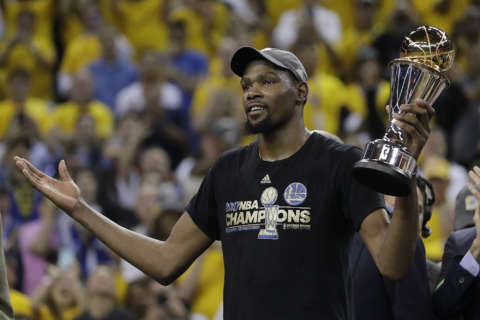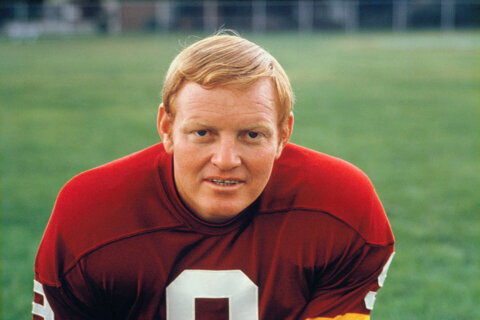WASHINGTON — Imagine the following scenario playing out in your office.
Ashley, a member of your department, informs the team at a weekly meeting that she’s been offered a more lucrative position with a more successful competitor in your industry. She says it was a tough decision, as she’s grown close to her current co-workers and formed many good memories here, but it was the best move for her, her family and her career. She thanks the room and wishes everyone well.
Her soon-to-be-former co-workers, yourself included, respond by screaming insults and profanities at her, accusing her of being a sellout, a traitor, of betraying everything she claims to stand for. Someone flips over the conference table in rage. Others are already back at Ashley’s cubicle, tearing down her calendar, stomping on her framed photos, lighting her company-branded polo shirt on fire while inventing a half-clever hashtag and Periscoping the whole thing.
I don’t feel like it’s a stretch to say we’d all agree this is insane behavior. And yet, welcome to Gordon Hayward’s world this week.
Dawg lol RT @Jcougar23 #betrayward pic.twitter.com/WGAtHFgcsP
— IG: @Mozeztheleader (@MozeztheLeader) July 5, 2017
Sports fans: Free agents do not owe you a thing. Nothing. They are not your friends, or even your co-workers, like poor Ashley above.
We all learned a lesson when LeBron James produced “The Decision,” which has served as a cautionary tale for players choosing to leave their initial markets ever since. Why do you think Kevin Durant — who is still dealing with this idiocy — Hayward and others have used The Players’ Tribune as a platform, telling their own stories in print, releasing the information on their own terms, far away from the cameras?
Free agency has only existed in professional sports since the 1970s, thanks to the self-sacrifice of Curt Flood. It didn’t come to the NBA until Tom Chambers forced the issue in 1988.
In baseball, a player doesn’t reach the coveted major league free agent mark until he accrues six seasons of big-league service time, following however many years he spends in the minors, making peanuts. Many players never make it that long. In fact, a 2007 study showed that the average position player’s big-league career is just 5.6 years.
Before that, a player is stuck with whatever organization drafted him or wherever he’s been traded. He doesn’t even have the same freedom that you or I do, to apply to a range of different companies to try to find the place that fits best for him.
When athletes choose the biggest contract, they’re accused of chasing the money, as if we all wouldn’t take a massive pay raise for a new gig. If they join up with a contender, they’re accused of chasing a ring, as if our culture didn’t elevate championships above all, negating the value of brilliant careers that didn’t include titles.
Remember this for 2018, when Bryce Harper will become a free agent (assuming he doesn’t sign an extension between now and then). Maybe he’ll stay. Maybe he won’t. Whatever he chooses to do, he’ll make the decision he thinks is best for him as an adult with the freedom to do just that.
If he leaves, it will be because that is what he has decided is best for him. You can be angry with him if he goes, but that will be your own issue.
If he stays, it will also be because that is what he has decided is best for him. All the PR spin in the world might help fans feel like they influenced the decision, but ultimately, it will have been made for him, by him.
So chill out with the vitriol and the hyperbolic accusations. If you wouldn’t say or do these things to Ashley, you shouldn’t do them to a bunch of strangers you’ve never met who don’t owe you a thing.







